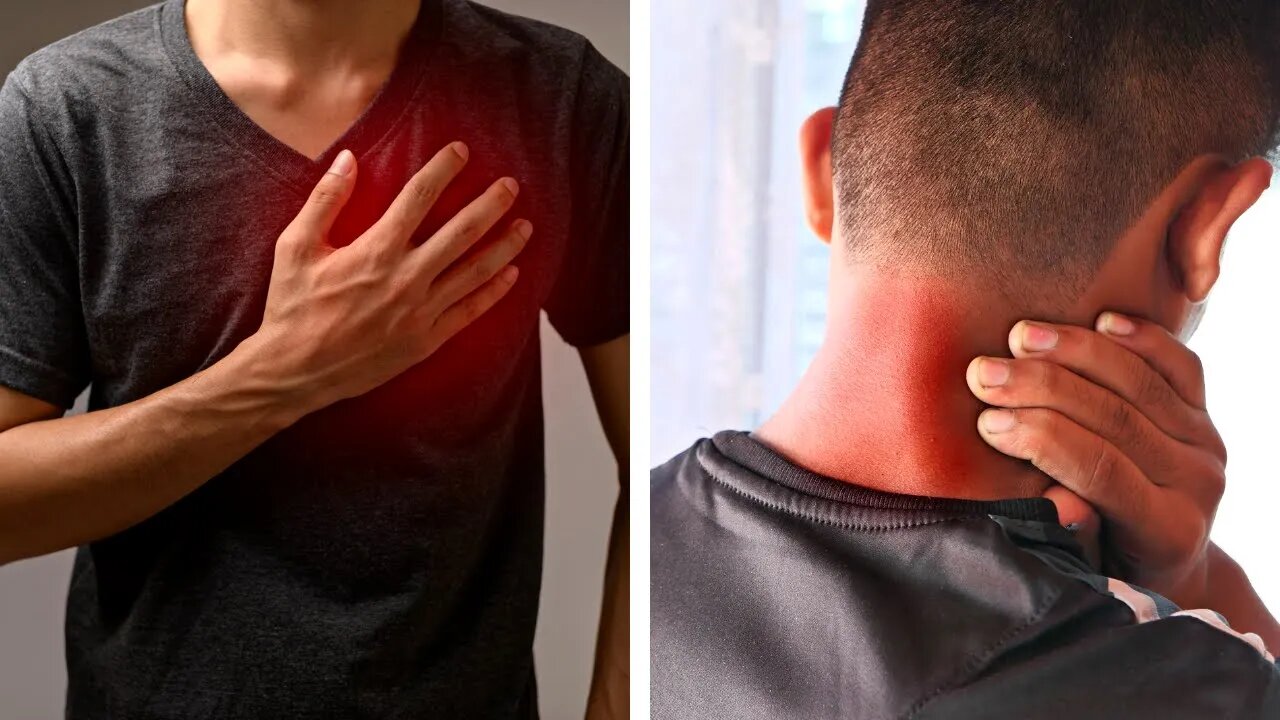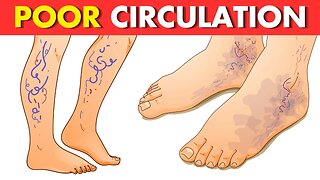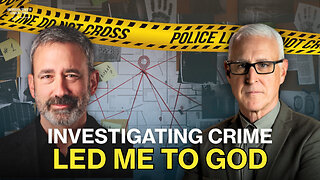Premium Only Content

If You Feel This Discomfort, Your Heart May Be At Risk
Silent and sneaky, hypertension affects around 30% of the adult population worldwide, according to the World Health Organization (WHO).
Known as high blood pressure, it is one of the high-risk factors for cardiovascular diseases, like heart attack and strokes.
But the issue is that most times hypertension is only noticed through the frequent measuring of blood pressure.
When the body starts giving signs, you have already developed the problem.
According to the experts, hypertension doesn't have symptoms.
All the things you feel result from the damages caused to the organs.
However, there is an exception: the sudden spikes in blood pressure.
When these spikes happen, we have some specific symptoms that need to be medicated quickly to avoid the risk of heart attack or stroke.
Do you know what signs suggest hypertension or sudden spikes in your blood pressure?
Pay attention to these signs since they can indicate a hypertensive crisis: dizziness, headaches, fatigue, shortness of breath, chest pain, ringing in the ears, blurry vision, neck pain, nausea, and vomiting.
Enjoying the video? Then, give it a like and share it with your friends!
You can also contribute to the channel through the Thanks button.
Don't forget to subscribe to be notified of any new videos!
These symptoms usually appear when the disease is advanced, so it is better to seek a doctor whenever your blood pressure is equal to or over 13/8, especially without apparent reason.
These signs are due to what we call "target organs damage."
The experts explain that shortness of breath and chest pain result from the left ventricular hypertrophy and a reduction in the coronary circulation, which can evolve into arrhythmia, acute pulmonary edema, heart insufficiency, and acute myocardial infarction.
Headaches, dizziness, ringing in the ears, and blurry vision are related to the physiological contraction of big brain blood vessels as a response to the increase in blood pressure and oozing liquids, which results in a cerebrovascular accident (CVA).
Don't ignore these symptoms when you notice them, as an early diagnosis is key.
The sooner you receive a diagnosis, the fewer injuries you will have.
What to do when you feel sick due to hypertension?
The best thing to do if you are dealing with an acute crisis or a chronic issue that affects the target organs is to remain calm and seek medical help as soon as you notice any symptoms.
Your doctor will probably ask for some exams, like blood and kidney tests and an EKG, to find the cause of your hypertension.
Don't make things easy for hypertension. The more you take care of yourself, and the sooner you get a diagnosis, the better your quality of life during the treatment will be.
The best way of preventing hypertension is to have a healthy lifestyle.
Have a balanced diet with moderated salt consumption, avoid being overweight, exercise regularly (3 to 5 days a week), and avoid exaggerated alcohol consumption.
Follow us on:
Facebook - https://bit.ly/38BWbw3
Pinterest - https://bit.ly/2Irvwa6
---------------------------------------
Disclaimer: The materials and the information contained on Natural Cures channel are provided for general and educational purposes only and do not constitute any legal, medical or other professional advice on any subject matter. These statements have not been evaluated by the FDA and are not intended to diagnose, treat or cure any disease. Always seek the advice of your physician or other qualified health provider prior to starting any new diet or treatment and with any questions you may have regarding a medical condition. If you have or suspect that you have a medical problem, promptly contact your health care provider.
-
 4:50
4:50
Natural Cures
1 year ago $1.17 earned5 Warning Signs of Poor Circulation and How to Fix It
3.7K1 -
 15:48
15:48
IsaacButterfield
1 day ago $0.93 earnedWoke Lunatic ATTACKS My 2 Year Old Son!!
6.03K10 -
 55:00
55:00
The Hannah Faulkner Show
20 hours ago $0.67 earnedKLAUS SCHWAB RESIGNS & A NEW POPE with Mike Crispi | The Hannah Faulkner Show
4.42K4 -
 36:50
36:50
Uncommon Sense In Current Times
12 hours ago $0.26 earnedHomicide Detective Finds God While Investigating True Crime | J. Warner Wallace
6.26K10 -
 1:00:51
1:00:51
Trumpet Daily
20 hours ago $3.24 earnedAmerica’s Shameful Foreign Policy - Trumpet Daily | Apr. 24, 2025
6.85K9 -
 17:18
17:18
VSOGunChannel
15 hours ago $0.37 earnedDNT HYDRA- A Thermal Sight You Can Actually Afford
5.74K3 -
 10:10
10:10
Mrgunsngear
13 hours ago $7.20 earnedNew Trijicon MRO SD - The Best American Made Red Dot Optic?
44.5K11 -
 13:42
13:42
SantaSurfing
16 hours ago4/24/2025 - Part 1 on Endless Frontiers Efficient & Powerful Tesla Homes! Revolutionary!
62.1K54 -
 12:19
12:19
T-SPLY
18 hours agoDemocrats Start Economic War With El Salvador!
48.5K38 -
 3:14:44
3:14:44
TimcastIRL
11 hours agoDemocrat RAIDED After He's CAUGHT Harboring TERRORIST TdA Member, Wife ARRESTED
237K203